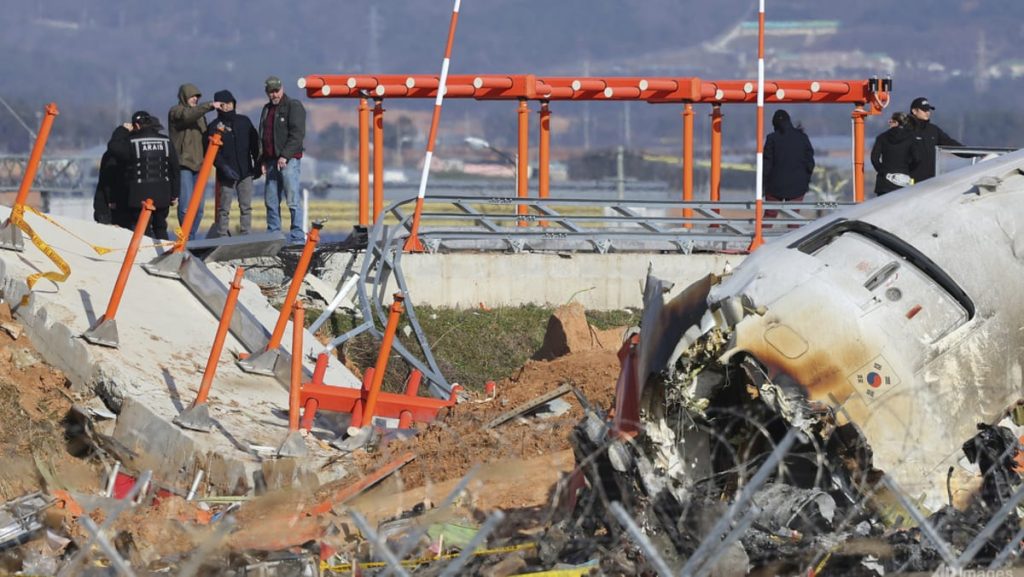The coastal county of Muan, South Korea, home to the Muan International Airport and renowned for its unique mudflat octopus, found itself grappling with an unprecedented wave of grief and cancellations in the wake of a tragic event. The usually bustling restaurants and shops lining “Octopus Street,” typically brimming with New Year’s revelers, stood eerily quiet, reflecting the somber atmosphere that had enveloped the community. Kim Myung-sook, a seasoned restaurateur with two decades of experience serving the local delicacy, captured the pervasive sentiment, opting to close her establishment on New Year’s Day, a stark departure from the usual festive celebrations. The abundance of cancellations, she explained, was understandable given the circumstances, as the collective focus shifted from holiday cheer to shared mourning. The unspoken weight of tragedy had effectively silenced the celebratory spirit, replacing anticipation with a profound sense of loss.
The heart of Muan’s culinary identity lies in its octopus, particularly the variety harvested from the shallow mudflats that characterize the region. Kim Myung-sook, a prominent figure in the local culinary scene, attested to the distinct qualities of this regional specialty. The tender texture and unique flavor, she explained, are attributed to the specific environment in which these octopuses thrive. The shallow mudflats, unlike deeper ocean environments, impart a tenderness and distinctive taste that sets the Muan octopus apart. This regional variation is so distinct that even its color differs, further solidifying its identity as a culinary treasure unique to the area. It’s a delicacy deeply intertwined with the local culture and economy, drawing visitors from near and far to experience its unparalleled taste.
The impact of the tragedy rippled through the community, casting a long shadow over businesses like Kim Myung-sook’s, which typically rely on the influx of holiday visitors. Her restaurant, usually a hub of activity during the New Year period, became a poignant symbol of the shared grief. The numerous reservations, typically a welcome sign of prosperity and celebration, were replaced by cancellations, reflecting the somber reality that gripped the community. The festive atmosphere synonymous with the New Year was replaced by a collective sense of mourning, as the community grappled with the immense scale of the loss. The act of eating, drinking, and celebrating felt incongruous in the face of such profound sorrow, highlighting the shift in priorities from revelry to remembrance.
For Kim Myung-sook, the cancellations were more than just a business setback; they represented a shared sense of loss and respect for the victims and their families. Her decision to close her restaurant on New Year’s Day was not driven by economic considerations, but rather by a deep empathy for the grieving community. She recognized that celebrating amidst such widespread sorrow would be insensitive and disrespectful. Her words, “How can anyone think of eating, drinking, and enjoying themselves in this situation?” underscored the prevailing sentiment that overshadowed the typical New Year exuberance. The festive spirit had been extinguished by the weight of tragedy, making it impossible to celebrate with any semblance of normalcy.
The depth of the tragedy transcended words, leaving even seasoned individuals like Kim Myung-sook struggling to express the enormity of the situation. Her inability to find words of comfort for the bereaved families spoke volumes about the profound impact of the event. The usual expressions of sympathy and condolence felt inadequate in the face of such overwhelming loss. The silence, in this instance, became a more potent expression of grief and solidarity than any words could convey. The community, united in their shared sorrow, found solace in the unspoken understanding of their collective experience.
The quiet streets of Muan, particularly the usually vibrant “Octopus Street,” served as a poignant reminder of the tragedy’s far-reaching impact. The absence of the usual New Year’s crowds and the closed doors of establishments like Kim Myung-sook’s restaurant painted a stark picture of a community in mourning. The bustling energy typically associated with the holiday season was replaced by a quiet reverence, as the community collectively honored the victims and supported the grieving families. The silence that enveloped the county spoke louder than any words, reflecting the depth of the shared sorrow and the unspoken understanding that bound the community together in this difficult time.

